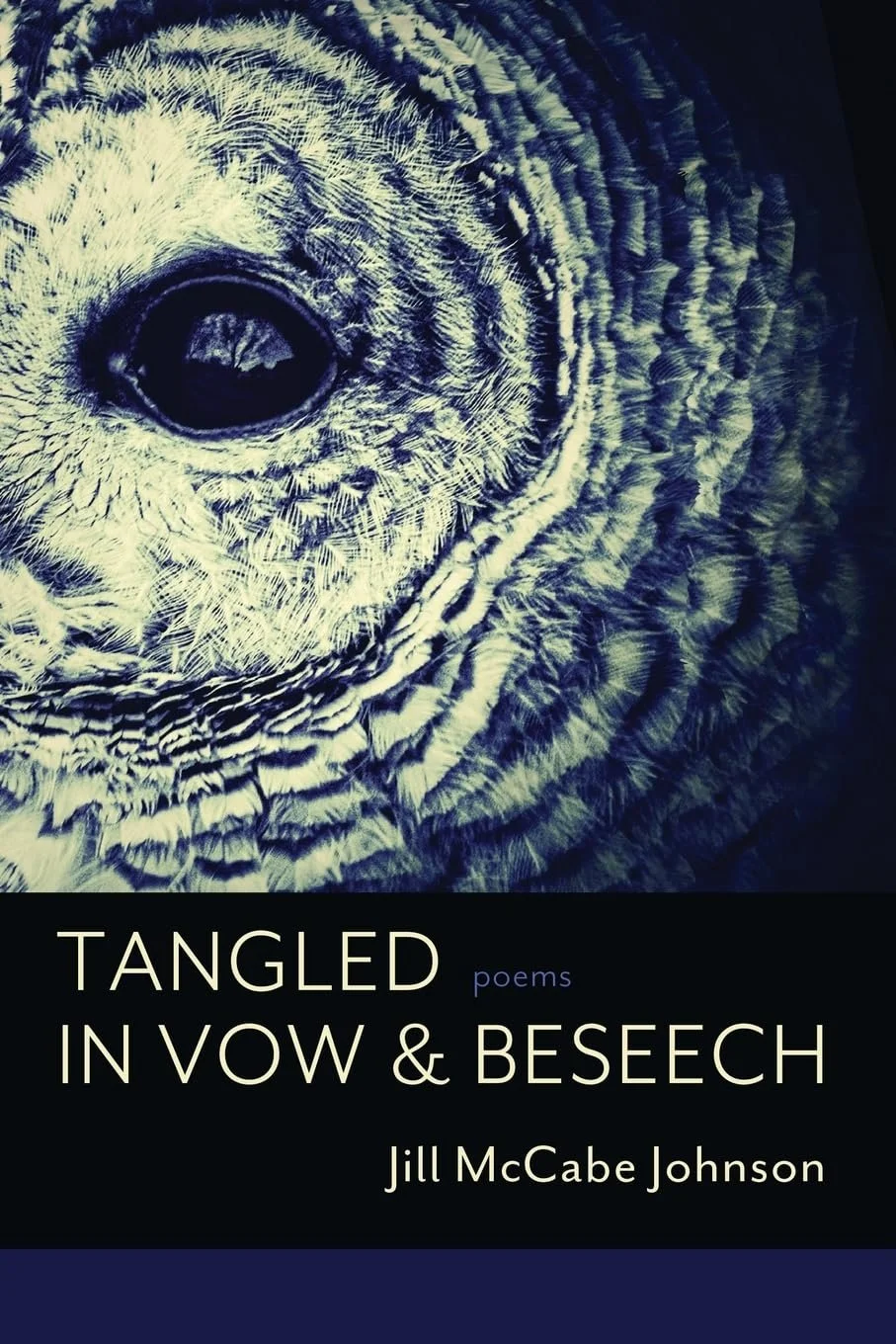Come Away From Her
(an excerpt)
GOOD FRIDAY, 1988
Their mournful call crept in through the corners of restless dreams dulled by consumption. High-pitched and constant, their wail stirred a slow tug of dread—especially in the early hours after dawn when everything moved a little slower and the light of day was just beginning to make its way upon the horizon. If the feeling of despair could be embodied by only one sound, it would be the raspy cawing of a flock of black crows. (read more)
“GOOD FRIDAY, 1988
Their mournful call crept in through the corners of restless dreams dulled by consumption. High-pitched and constant, their wail stirred a slow tug of dread—especially in the early hours after dawn when everything moved a little slower and the light of day was just beginning to make its way upon the horizon. If the feeling of despair could be embodied by only one sound, it would be the raspy cawing of a flock of black crows. ”
Samuel was raised in a small town in northeast Pennsylvania (population 379) and now resides on remote Orcas Island. His writing has been compared to Steinbeck and Cormac McCarthy and been praised by the NY Times, Publisher's Weekly, Kirkus, Esquire and more. His novels are intriguing studies of human nature and portray how the simplest twist of fate can alter and shatter lives. His central characters are flawed but deserving of redemption.
Internationally, his novels, The Guilt We Carry (Une Question de Temps) and Deep Winter have been translated into French by Gallmeister Editions. German publisher Polar Verlag released The Guilt We Carry (Die Schuld) in January 2024, and will be translating Deep Winter (2025) and Come Away From Her (2026).
Samuel is currently working on his next novel that is set in the 1700s and centered on a German Mennonite family of settlers grappling with a murder committed by one of their own children. It’s Bad Seed meets The Revenant.
Come Away From Her
(an excerpt)
GOOD FRIDAY, 1988
Their mournful call crept in through the corners of restless dreams dulled by consumption. High-pitched and constant, their wail stirred a slow tug of dread—especially in the early hours after dawn when everything moved a little slower and the light of day was just beginning to make its way upon the horizon. If the feeling of despair could be embodied by only one sound, it would be the raspy cawing of a flock of black crows. (read more)
“GOOD FRIDAY, 1988
Their mournful call crept in through the corners of restless dreams dulled by consumption. High-pitched and constant, their wail stirred a slow tug of dread—especially in the early hours after dawn when everything moved a little slower and the light of day was just beginning to make its way upon the horizon. If the feeling of despair could be embodied by only one sound, it would be the raspy cawing of a flock of black crows. ”
Samuel was raised in a small town in northeast Pennsylvania (population 379) and now resides on remote Orcas Island. His writing has been compared to Steinbeck and Cormac McCarthy and been praised by the NY Times, Publisher's Weekly, Kirkus, Esquire and more. His novels are intriguing studies of human nature and portray how the simplest twist of fate can alter and shatter lives. His central characters are flawed but deserving of redemption.
Internationally, his novels, The Guilt We Carry (Une Question de Temps) and Deep Winter have been translated into French by Gallmeister Editions. German publisher Polar Verlag released The Guilt We Carry (Die Schuld) in January 2024, and will be translating Deep Winter (2025) and Come Away From Her (2026).
Samuel is currently working on his next novel that is set in the 1700s and centered on a German Mennonite family of settlers grappling with a murder committed by one of their own children. It’s Bad Seed meets The Revenant.
Samuel W. Gailey
American novelist
Works: Deep Winter/The Guilt We Carry/Come Away From Her
Come Away From Her
(an excerpt)
GOOD FRIDAY, 1988
Their mournful call crept in through the corners of restless dreams dulled by consumption. High-pitched and constant, their wail stirred a slow tug of dread—especially in the early hours after dawn when everything moved a little slower and the light of day was just beginning to make its way upon the horizon. If the feeling of despair could be embodied by only one sound, it would be the raspy cawing of a flock of black crows. (read more)
“GOOD FRIDAY, 1988
Their mournful call crept in through the corners of restless dreams dulled by consumption. High-pitched and constant, their wail stirred a slow tug of dread—especially in the early hours after dawn when everything moved a little slower and the light of day was just beginning to make its way upon the horizon. If the feeling of despair could be embodied by only one sound, it would be the raspy cawing of a flock of black crows. ”
Samuel was raised in a small town in northeast Pennsylvania (population 379) and now resides on remote Orcas Island. His writing has been compared to Steinbeck and Cormac McCarthy and been praised by the NY Times, Publisher's Weekly, Kirkus, Esquire and more. His novels are intriguing studies of human nature and portray how the simplest twist of fate can alter and shatter lives. His central characters are flawed but deserving of redemption.
Internationally, his novels, The Guilt We Carry (Une Question de Temps) and Deep Winter have been translated into French by Gallmeister Editions. German publisher Polar Verlag released The Guilt We Carry (Die Schuld) in January 2024, and will be translating Deep Winter (2025) and Come Away From Her (2026).
Samuel is currently working on his next novel that is set in the 1700s and centered on a German Mennonite family of settlers grappling with a murder committed by one of their own children. It’s Bad Seed meets The Revenant.
The Unspoken
(an excerpt from a work-in-progress)
The old woman heard the urgent clamor of voices, and although her eyesight was failing, she spotted the flicker of dancing flames through the tiny window of her cabin. A salted deer hide flapped over the opening but did little to block the cold winds that swept down the side of the mountain. However, it was all she had and would likely ever have. (read more)
“The old woman heard the urgent clamor of voices, and although her eyesight was failing, she spotted the flicker of dancing flames through the tiny window of her cabin. A salted deer hide flapped over the opening but did little to block the cold winds that swept down the side of the mountain. However, it was all she had and would likely ever have. ”
Samuel was raised in a small town in northeast Pennsylvania (population 379) and now resides on remote Orcas Island. His writing has been compared to Steinbeck and Cormac McCarthy and been praised by the NY Times, Publisher's Weekly, Kirkus, Esquire and more. His novels are intriguing studies of human nature and portray how the simplest twist of fate can alter and shatter lives. His central characters are flawed but deserving of redemption.
Internationally, his novels, The Guilt We Carry (Une Question de Temps) and Deep Winter have been translated into French by Gallmeister Editions. German publisher Polar Verlag released The Guilt We Carry (Die Schuld) in January 2024, and will be translating Deep Winter (2025) and Come Away From Her (2026).
Samuel is currently working on his next novel that is set in the 1700s and centered on a German Mennonite family of settlers grappling with a murder committed by one of their own children. It’s Bad Seed meets The Revenant.
“McCabe Johnson writes intimately about family, nature, and animals, while also protesting the violences of religion, patriarchy, and racism.”
The Night Gary Drove Me Home
In the 1980s, I met a man at a dance hall. One night I took him home. Nearly four decades later, I made a chilling discovery.
Jill McCabe Johnson (she, they) grew up in the Pacific Northwest and spent her childhood digging for clams and geoducks, harvesting wild berries, and reading in poor light. Jill writes poetry and narrative nonfiction, plus occasional forays into fiction, with a deep social conscience and even deeper roots in nature and the natural sciences. Her aims and interests lie at the intersection of protecting the endangered and leaning into what's just and beautiful in this world. So while her writing may address issues such as entrenched racism, gender violence, climate change, or mass killings, she believes every piece of writing at heart is a communique of hope.
Jill is the author of three full-length poetry collections, including Tangled in Vow & Beseech, finalist in the Sally Albiso Poetry Book Award and Wheelbarrow Books Poetry Award and forthcoming from MoonPath Press, Revolutions We'd Hoped We'd Outgrown, (Finishing Line, 2017) shortlisted for the Clara Johnson Award in Women's Literature from Jane's Stories Press Foundation, and Diary of the One Swelling Sea (MoonPath, 2013), winner of the Nautilus Book Silver Award in Poetry. Jill is also the author of the nonfiction chapbook Borderlines (Sweet Publications, 2016) and the poetry chapbook, Pendulum (Seven Kitchens, 2017), finalist for the Rane Arroyo Award. Jill is the founder and editor-in-chief at Wandering Aengus Press and its imprint Trail to Table Press.









